This site contains affiliate links. I may earn a small commission, at no extra cost to you.
Yes, the Ordinary are stepping back into making sunscreens after discontinuing their previous mineral sunscreen.
So if you’re wondering does the Ordinary do sunscreen?
In this post, I’ll share everything we know so far about the new Ordinary sunscreen, UV Filters SPF 45 Serum.
Does the Ordinary do sunscreen? 101 on their new SPF
Table of Contents
- What happened to the Ordinary mineral UV filters SPF?
- Details of the new sunscreen by The Ordinary
- Chemical vs mineral filters
- Is non-comedogenic sunscreen good for acne?
- Does the Ordinary sunscreen have a white cast?
- The Ordinary sunscreen ingredients
- Is the new Ordinary SPF for oily skin?
What happened to the Ordinary mineral UV filters SPF?
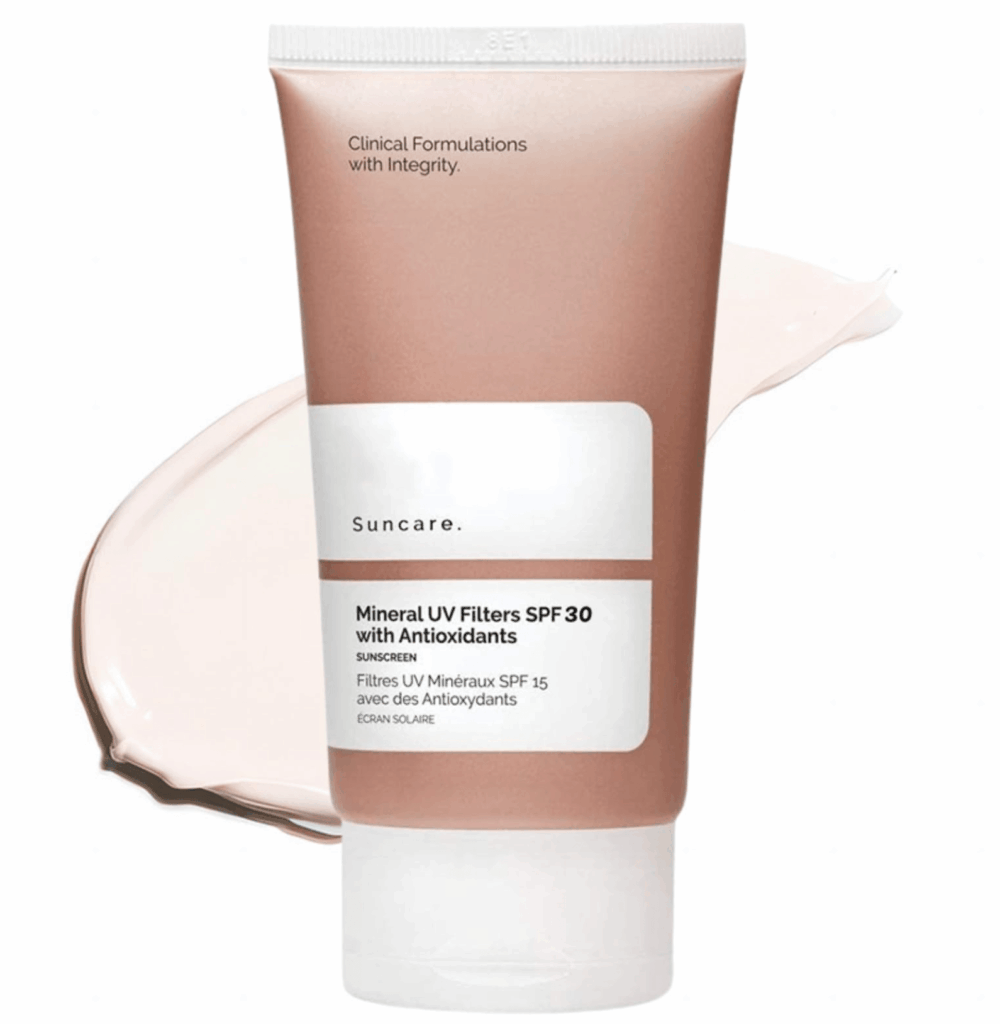
Mineral UV filter formulas, also known as physical sunscreens, are notoriously hard to make well.
In the recent press release I’ve received, and from memory, the The Ordinary’s mineral SPF was not a popular product.
Mineral SPF protection is guaranteed to come with at least some white cast, and the finish can be chalky.
This is because mineral filters are white, including: zinc oxide, titanium dioxide and others.
Ultimately, people did not enjoy using it and The Ordinary discontinued it.
Details of the new sunscreen by The Ordinary
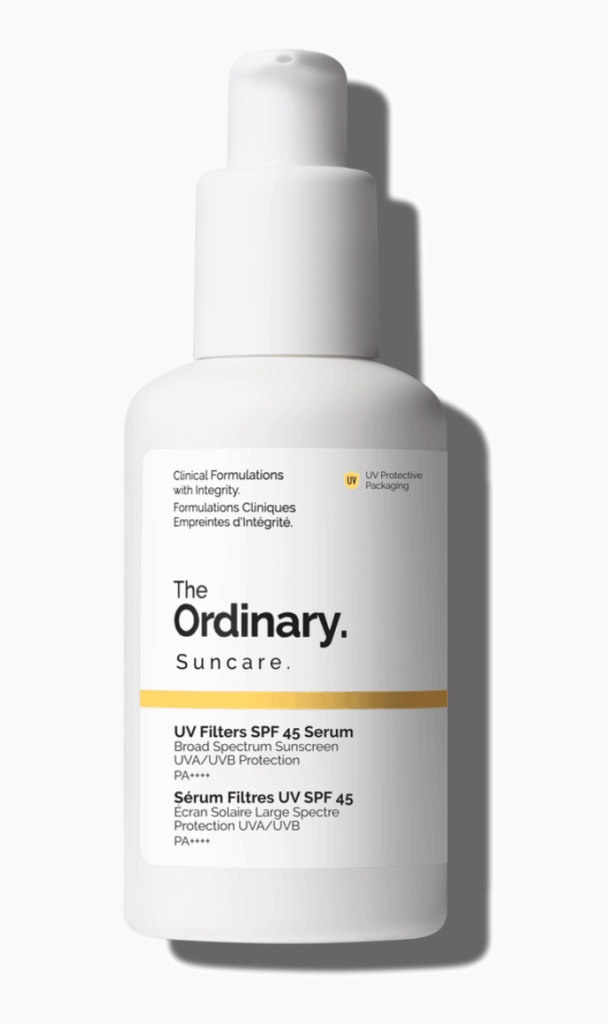
I started writing this post before it was released. So far, we know a few things:
- It’s a fully chemical sunscreen, so it does not use physical-based filters like the old sunscreen
- It provides sun protection factor (SPF) rating of 45
- The Ordinary say it should have no white cast at all
- Apparently it is non comedogenic – more on this later
- It is designed to be hydrating all day, and provide a natural glow (so not matte)
- The ingredient list is said to contain quite a few ceramides to boost the skin’s appearance
- It’s a serum consistency
Next, I’ll break these down one by one so you can decide if the new Ordinary sunscreen might be for you.
Chemical vs mineral filters

The new Ordinary sunscreen uses Homosalate, Octisalate, Octocrylene and Avobenzone.
These are all chemical filters that protect against both types of UV rays: UVB rays for burning and UVA for premature sun damage.
More on the difference between UVA and UVB later.
Recently there has been some false hype about mineral filters being superior to chemical filters, which is not true.
Some mineral filters are better tolerated by sensitive skin, but 99% of self named ‘mineral’ sunscreens also include some chemical filters, such as butyloctyl salicylate.
The Ordinary say the best sunscreen is the one you actually like to use, so you use it regularly – I’m inclined to agree.
Both chemical and mineral filters protect you, but it’s super difficult to make a pleasant mineral sunscreen, which is why they chose to make this one a chemical.
One downside of these filters might be eye sting – it’s very individual, but these filters have caused eye sting for me in the past.
Is non-comedogenic sunscreen good for acne?
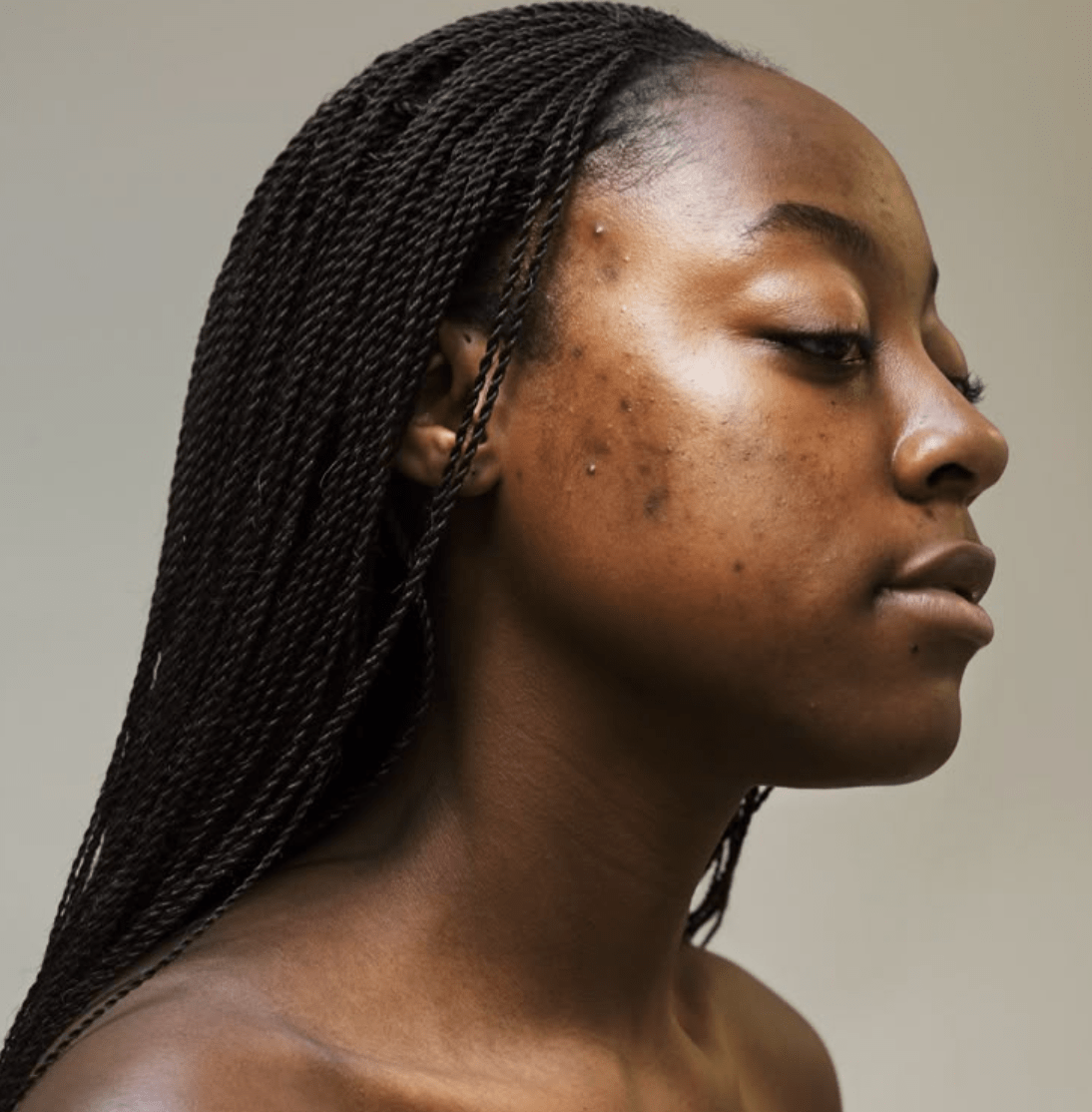
Even though the Ordinary has said the new sunscreen is non comedogenic, it’s important to know what that truly means.
A lot of people assume this means it won’t cause breakouts, but unfortunately that’s not the case.
In short, ‘non comedogenic’ is something that cannot be scientifically guaranteed.
This is because what breaks everyone out is different, so it is impossible to claim.
If you’re still in doubt, I recommend my older blog post about pore cloggers in sunscreens.
How to prevent breakouts from sunscreen
I always recommend patch testing a new product on one cheek for a few days to a few weeks, before applying it to your whole face.
I have very clog prone skin, and I notice new breakouts form within hours sometimes.
This stops me from having the 10x worse breakouts I used to get from new products, because I only get them on one cheek instead of my whole face!
Does the Ordinary sunscreen have a white cast?
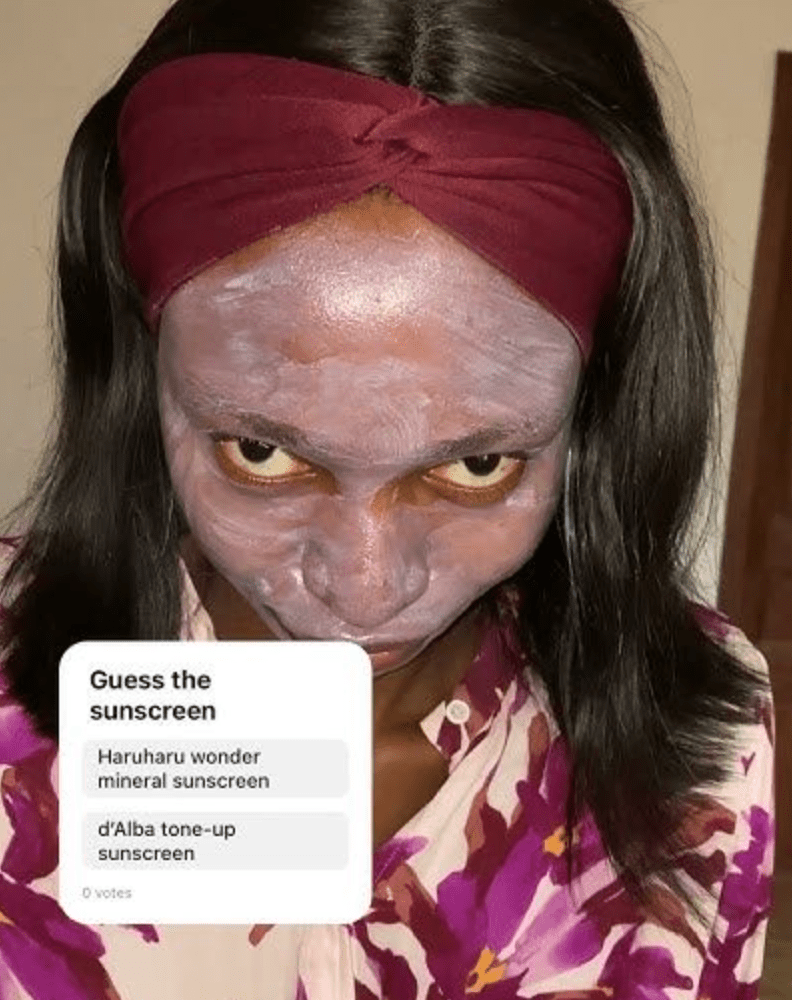
I have yet to see any videos of real time application on medium-deep skin tones, so I cannot be certain.
However, because it uses chemical filters, there’s a high chance it won’t give a white cast.
With mineral sunscreen it’s impossible to avoid at least a small one, because the filters are white particles suspended in the cream.
The Ordinary sunscreen ingredients
Now that the new Ordinary spf has been released, I will quickly summarise some thoughts I have on the INCI list.
Aqua/Water/Eau, Isododecane, Octocrylene, Dimethicone/Vinyl Dimethicone Crosspolymer, Homosalate, Butyloctyl Salicylate, Ethylhexyl Salicylate, Diethylhexyl 2,6-naphthalate, Tri(Polyglyceryl-3/Lauryl) Hydrogenated Trilinoleate, Butyl Methoxydibenzoylmethane, Poly C10-30 Alkyl Acrylate, Acetyl Carnosine, Biosaccharide Gum-2, Phospholipids, Sphingolipids, Glycerin, Propanediol, Pentylene Glycol, Magnesium Sulfate, p-Anisic acid, Sodium Citrate, Tocopherol, Trisodium Ethylenediamine Disuccinate, Phenoxyethanol, Chlorphenesin
It’s important to note that you can’t tell THAT much by the ingredients list, since the INCI list is not the same as the formula.
- This sunscreen should have good UVA and UVB coverage (aging and burning protection)
- It is essential oil and fragrance free, a good sign for more sensitive skin types
- It has two kinds of antioxidant support, vitamin E (tocopherol) and carnosine
Overall, the new Ordinary sunscreen has a minimal formula which is a green flag for me.
My only amber flag are the chemical filters, that personally have caused me eye sting and are most likely not suitable for my perioral dermatitis.
For everyone else, this might work great.
Is the new Ordinary SPF for oily skin?
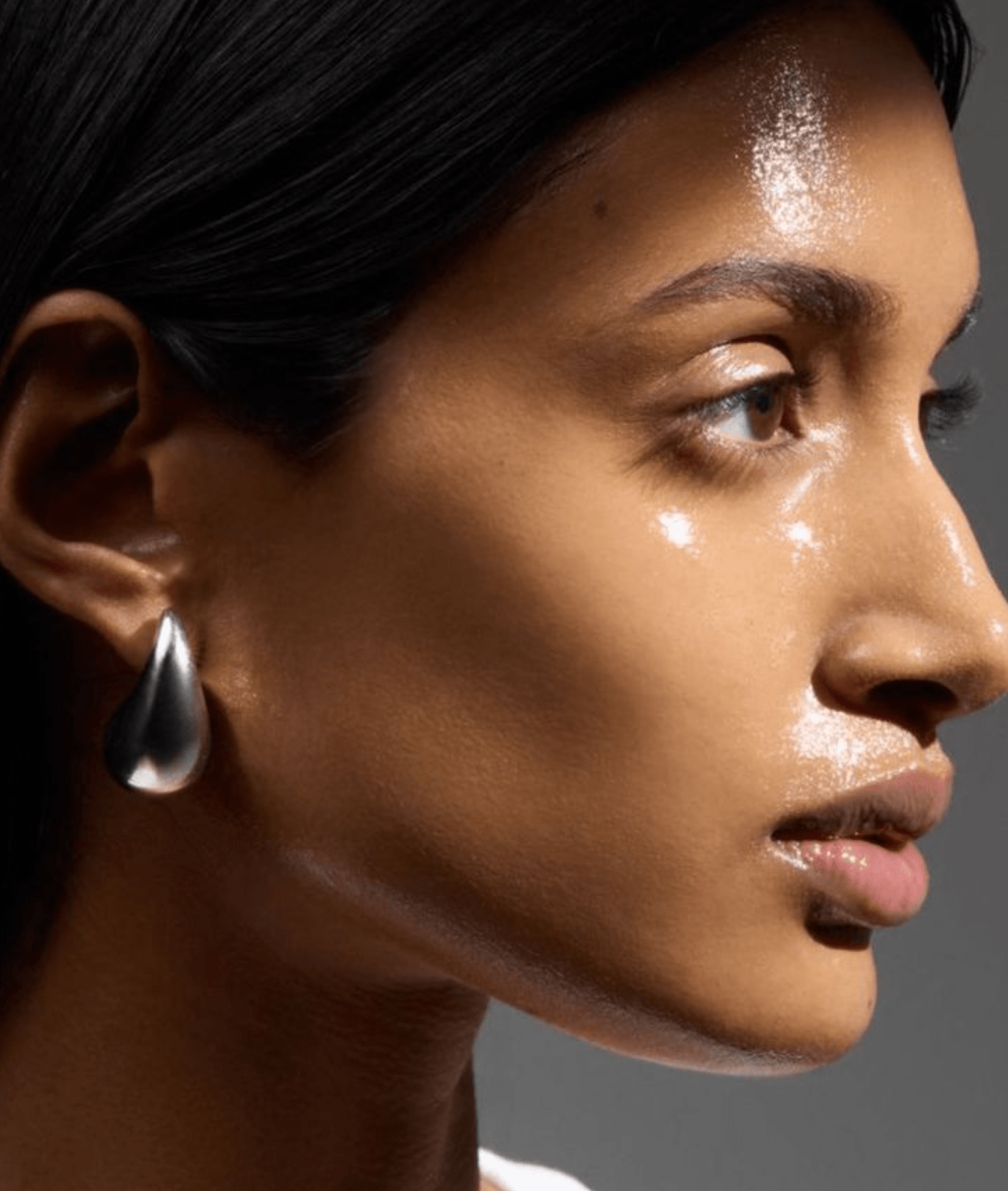
I wanted to touch on which skin types might suit the new Ordinary sunscreen.
The chemical filters used here are quite likely to feel a bit too moisturising for oily skin types.
This is just my speculation based on trying other sunscreens with these filters.
The Ordinary does say it provides hydration support, I just personally wonder if it will be a bit greasy.
I think it will be ideal for dry skin types, and should support a healthy skin barrier too.
This was Does the Ordinary do sunscreen? 101 on their new SPF. You may also like:
- Should I wear sunscreen everyday even in winter?
- The Best Byoma Products For Acne Prone Skin
- The Best Sunscreen for People with Sensory Issues